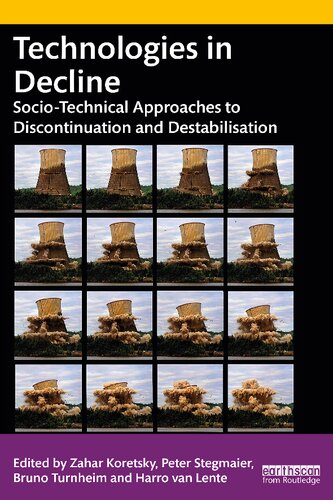

Most ebook files are in PDF format, so you can easily read them using various software such as Foxit Reader or directly on the Google Chrome browser.
Some ebook files are released by publishers in other formats such as .awz, .mobi, .epub, .fb2, etc. You may need to install specific software to read these formats on mobile/PC, such as Calibre.
Please read the tutorial at this link: https://ebookbell.com/faq
We offer FREE conversion to the popular formats you request; however, this may take some time. Therefore, right after payment, please email us, and we will try to provide the service as quickly as possible.
For some exceptional file formats or broken links (if any), please refrain from opening any disputes. Instead, email us first, and we will try to assist within a maximum of 6 hours.
EbookBell Team

4.7
16 reviewsThe central questions of this book are how technologies decline, how societies deal with technologies in decline, and how governance may be explicitly oriented towards parting with ‘undesirable’ technology.
Surprisingly, these questions are fairly novel. Thus far, the dominant interest in historical, economic, sociological and political studies of technology has been to understand how novelty emerges, how innovation can open up new opportunities and how such processes may be supported. This innovation bias reflects how in the last centuries modern societies have embraced technology as a vehicle of progress. It is timely, however, to broaden the social study of technology and society: next to considering the rise of technologies, their fall should be addressed, too. Dealing with technologies in decline is an important challenge or our times, as socio-technical systems are increasingly part of the problems of climate change, biodiversity loss, social inequalities and geo-political tensions. This volume presents empirical studies of technologies in decline, as well as conceptual clarifications and theoretical deepening. Technologies in Decline presents an emerging research agenda for the study of technological decline, emphasising the need for a plurality of perspectives.
Given that destabilisation and discontinuation are seen as a way to accelerate sustainability transitions, this book will be of interest to academics, students and policy makers researching and working in the areas of sustainability science and policy, economic geography, innovation studies, and science and technology studies.